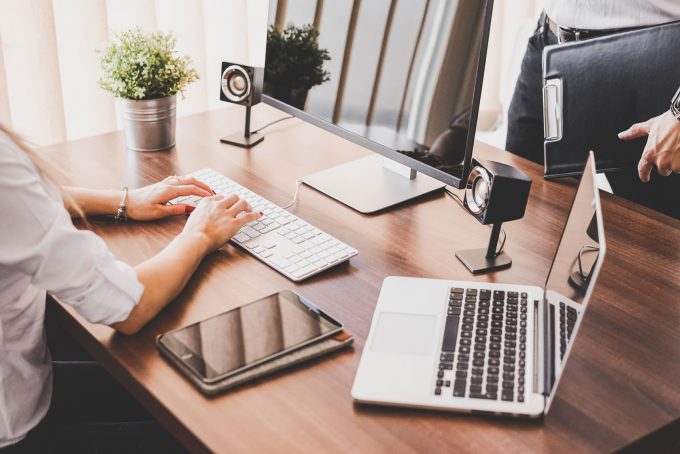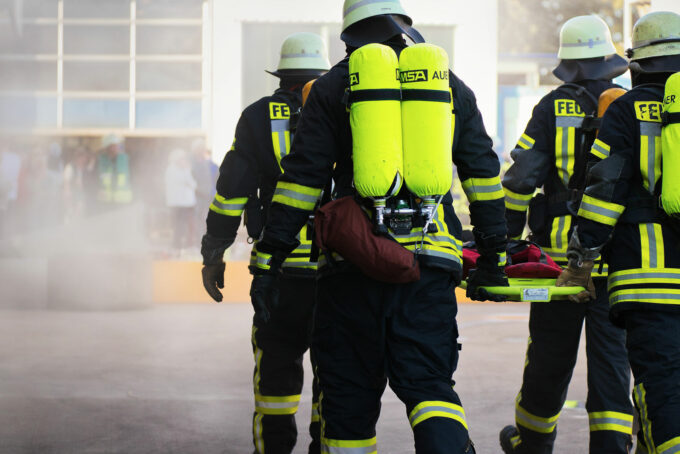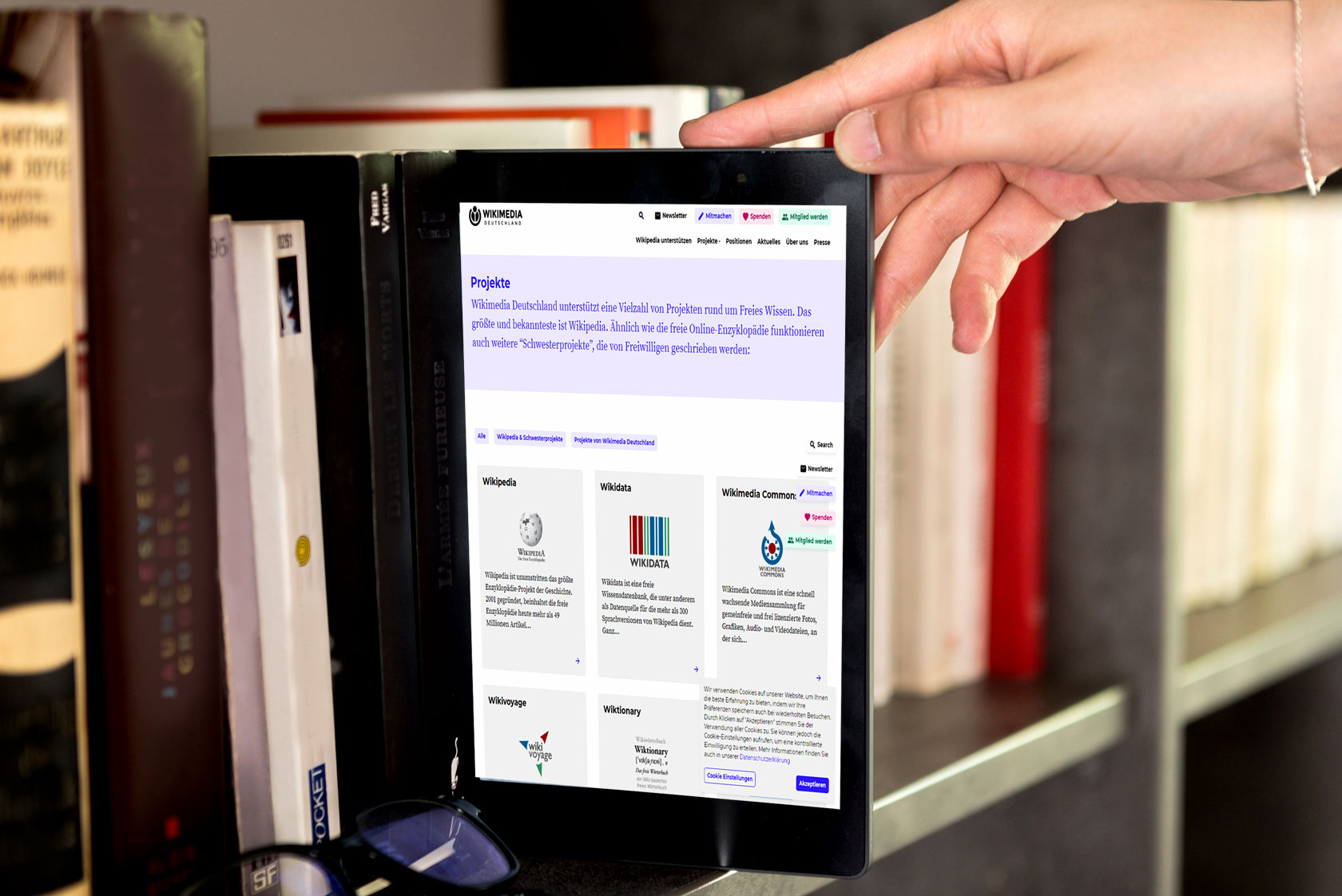
Wikimedia 2030: Mit Bibliotheken zur größten Wissensinfrastruktur der Welt
Das internationale Wikimedia-Movement, das vor allem für ihr Community-basiertes Online-Lexikon Wikipedia bekannt ist, hat sich anlässlich ihres 15-jährigen Bestehens auf ins Jahr 2030 gemacht und in einem offenen Prozess Strategien, Werte und Ziele definiert. Nicole Ebber und Holger Plickert von Wikimedia Deutschland beantworten uns einige Fragen zur Transformation, dazu, wie Wikimedia die größte Wissensinfrastruktur der Welt werden will und welche Verbindungen sie zu Bibliotheken sehen.
Interview with Nicole Ebber and Holger Plickert
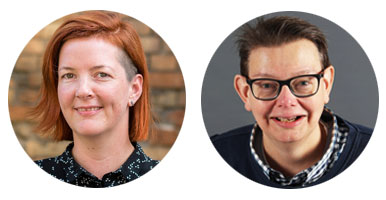
For many years now, libraries have been undergoing a transformation towards digital infrastructure facilities. The aim is to manage the process of digitisation and the associated cultural change towards Open Science in the best way possible while preserving libraries’ time-honoured virtues. International Wikimedia organisations like Wikimedia Germany or the Wikimedia Foundation in the US have much in common with libraries. One could call them partners from the ecosystem of free knowledge.
Together with an international team, Nicole Ebber led the process of developing the transformation towards Wikimedia 2030. Holger Plickert has been working in the Education, Science and Culture team at Wikimedia Germany for years, developing cooperative projects that bring free knowledge communities together with institutions such as libraries. Today they’re telling us what their big aha moments were in the context of structural reform, and what libraries can learn from Wikimedia.
After more than two years, the strategy development for Wikimedia 2030 has now achieved significant results. What should/can we expect Wikimedia 2030 to look like?
We’ve arrived at 10 recommendations and 10 principles hat describe the Wikimedia movement of the future: Wikimedia is becoming more diverse, friendly, participatory, equal and global. More people, machines and organisations from around the entire world will participate and contribute their knowledge, develop knowledge and pass it on. Wikimedia will be the foundation for equitable knowledge dissemination throughout the world. We have set ourselves ambitious goals and of course cannot achieve them alone. It’s only through working together with partners from the ecosystem of free knowledge that we’ll see the desired results.
In the Wikimedia 2030 strategy process, what have you identified as the major challenges for cultural change towards free knowledge? How will you overcome them?
Western formats for knowledge – Wikipedia included – are not particularly well suited to gathering the unrecorded knowledge of marginalised groups. Our communities are not diverse enough to also portray diversity in knowledge. In our movement, we have grown structures that perpetuate inequality and the unjust placement of decisions and resources. These are just a few of the challenges that the strategy and structural reform will now address.
Apart from this, we are constantly working on many levels to ensure that content is freely published in areas such as open educational materials, Open Science and more. In addition, we advocate national and regional legal and political framework conditions (German) that make a free and open Internet possible in the first place. And with Wikidata, we have a project that makes the knowledge of the world accessible in a structured form. Here, too, we often work together with cultural institutions and organisations that, thanks to their data, further enrich the large, free data treasure chest, that has worked with Wikidata.
How can you guarantee that the knowledge you provide or that is generated on your platforms is serious? How do you combat fake news?
We don’t do anything against fake news directly, except make sure that facts are always backed up with references in our projects and that people know the knowledge is “serious”. However, Wikipedia and Wikidata aren’t perfect – they never will be. The most important control factor is the community, which works according to long-established rules on relevance and references. Wikipedia and the other Wikimedia projects are the last Gallic villages on the Internet; they’re virtual places and communities that aren’t driven by profit or political interests. This will always be the case and contributes to the reliability and good reputation of our content.
Furthermore, we must also think about what’s considered “serious” knowledge and how we can involve marginalised and educationally disadvantaged groups. “Fakten prüfen im Netz” (German, “Check Facts on the Internet”), which we developed with the Zentral- und Landesbibliothek Berlin is invested in this goal. Here, people are given simple tips on how to classify information from the Internet so that they don’t fall for fake news.
Where do you see similarities between modern libraries / infrastructure facilities and Wikimedia?
The best common feature is clearly the collaborative aspect. The Wikimedia projects are supported by communities. Libraries also try to install communities around their homes. They should work into the houses, but also enrich the whole house or team of the house with their own background of experience. In this way, new perspectives become possible and even marginalised knowledge can be made visible. Currently, as it relates to libraries, an important topic concerns opening up to the outside world. The key term here is “The library as a third space” (German): a place of learning that’s simple and easily accessible to everyone. An environment of learning together, networking, exchanging ideas and trying out projects. It’s like in the Wikimedia movement, only more locally positioned.
There’s also the “change of values” within the institution. Libraries increasingly see themselves as service providers of knowledge and information, creating a local platform for further education and research. The technical equipment is getting better and more commonly shifted toward – and linked to – the Internet. They help people in forming their opinions and thus make their contribution to digital literacy development.
So there are similar approaches behind it which could and essentially should lead to common goals. As a credible and honest mediator of factual information and provider of a large selection of valid sources, the library is similar to Wikipedia – and both are digital infrastructure facilities.
Many libraries and archives have also digitised their collections over the last decade. This does not mean, however, that access has been created for all. We can help by integrating content into our projects, or by using Wikidata and Wikibase to organise data about content, thus making the content accessible, searchable, and semantically linkable.
There are also always ideas about bringing marginalised knowledge together in Wikimedia projects. Libraries have the digitised material and collections, and together with volunteers from the Wikimedia community they create relevant content.
One of your visions is to be the most important infrastructure in the ecosystem of free knowledge by 2030 (https://meta.wikimedia.org/wiki/Strategy/Wikimedia_movement/2018-20/Recommendations). What exactly does this mean? How do you aim to achieve this?
One of your visions is to be the most important infrastructure in the ecosystem of free knowledge by 2030. What exactly does this mean? How do you aim to achieve this?
It means we have to define what this ecosystem actually is and what kind of organisms live there. In practice, we have to form partnerships with many actors who have knowledge that is still not accessible to everyone: educational, research and cultural institutions as well as museums, libraries and archives.
We need to be involved at the political level and ensure that knowledge supported with public funds becomes a public good. We also must link our global movement across national and linguistic borders while creating fair and solidary structures.
You say that anyone who shares this vision can join you. How could this specifically look in the case of a library?
We already have numerous collaborations with libraries that are both formal and informal. Wikipedia and Wikidata contributors have always used libraries to research references for articles and Wikidata items. Wikibase, the software on which Wikidata is based, has become very interesting for libraries in recent years because it is an excellent repository for metadata about collections. For example, the German National Library uses a Wikibase instance, and transferring the Integrated Authority File (GND) to Wikibase is considered as well. The National Library of France and the Smithsonian Libraries are working with us on similar projects. Free access to data about collections can create new knowledge communities and alliances, and the data can be linked to Wikidata.
A good example of these collaborative efforts is the 1Lib1Ref programme: an international campaign to empower and encourage librarians to add references and individual evidence to Wikipedia articles in order to improve access to reliable literature.
How can we succeed in creating and maintaining an open and cooperative ecosystem of free knowledge with reliable partners like libraries?
Wikimedia projects are run by volunteers. For years we have had formats in which the volunteers bring cultural and knowledge institutions together and work towards making content accessible, using it anew and giving it an understanding in Wikimedia projects or among new populations. These include Coding Da Vinci, GLAM on Tour (German), KulTour (German), Zugang Gestalten (German) and others. Wikidata and Wikibase are increasingly used by libraries, thus making their metadata accessible. We are looking forward to engaging in cooperative projects in future.
Further informations
- Link toStrategie portal Strategy/Wikimedia movement/2018-20.
- Interview with Nicole Ebber: “How do you reform Wikipedia?” (German).
- Hackathon Coding da Vinci 2018.
Nicole Ebber is Head of Movement Strategy & Global Relations at Wikimedia Deutschland e. V., where she designs strategic cooperation plans with the global network of Wikimedia organisations. She leads projects on international governance and global strategy implementation to ensure that in future, more people will have access to even more liberated knowledge. Nicole is an information management specialist and in 2007 wrote her thesis on Creative Commons licenses.
Holger Plickert,M.A., is Project Manager for Culture and Community at Wikimedia Deutschland e.V. He previously worked for the Stiftung Preußische Schlösser und Gärten Berlin-Brandenburg (“Prussian Palaces and Gardens Foundation Berlin-Brandenburg”) and the Kulturquartier Mecklenburg-Strelitz gGmbH, among others. In his current role, he sees himself as a link between the Wikimedia project volunteers and the cultural and memory institutions. He studied history and political science at the Free University of Berlin and the University of Hagen.
View Comments
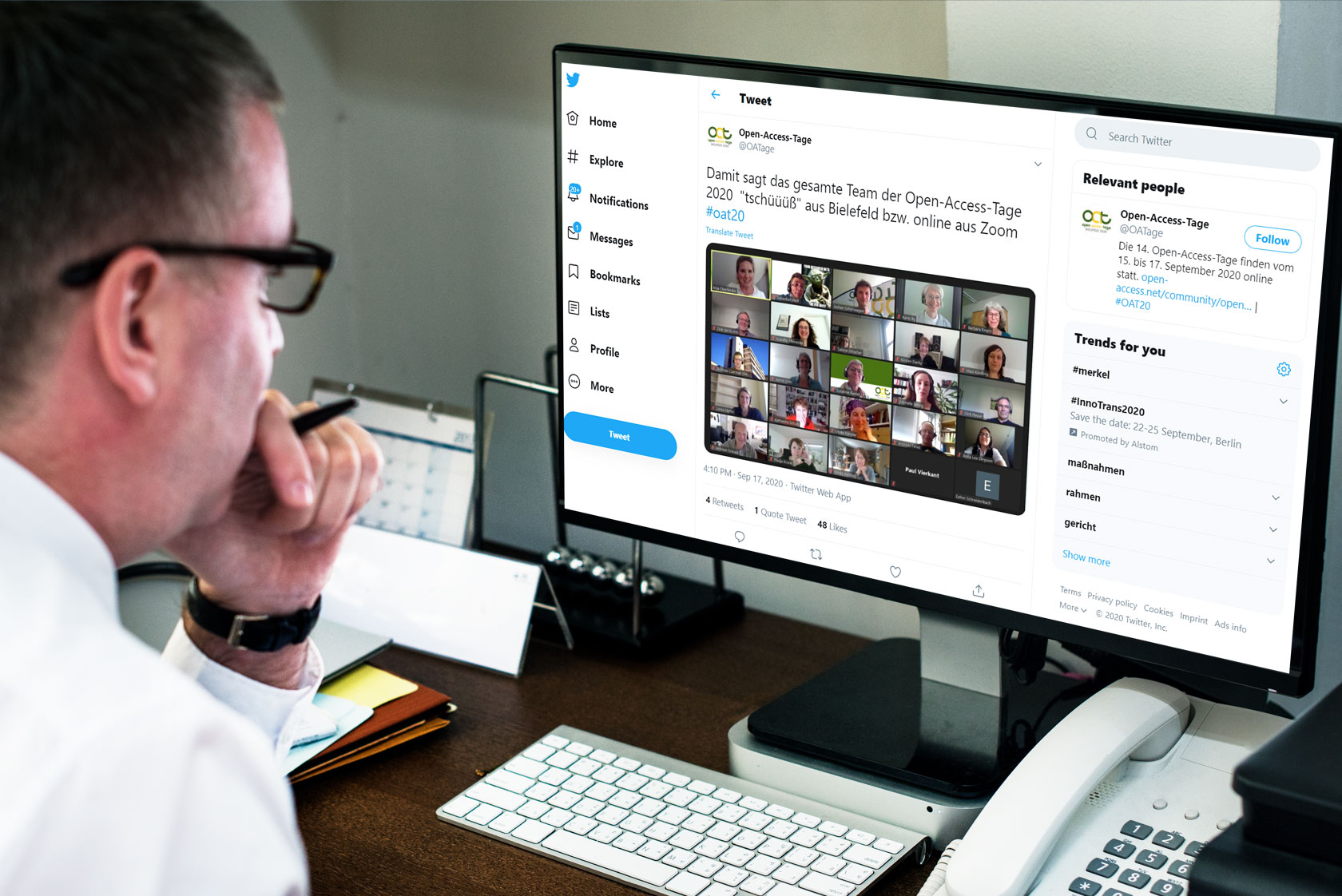
Open Access Days 2020: Highlights & Tips
The Open Access Days 2020 were held online for the first time under the motto...

